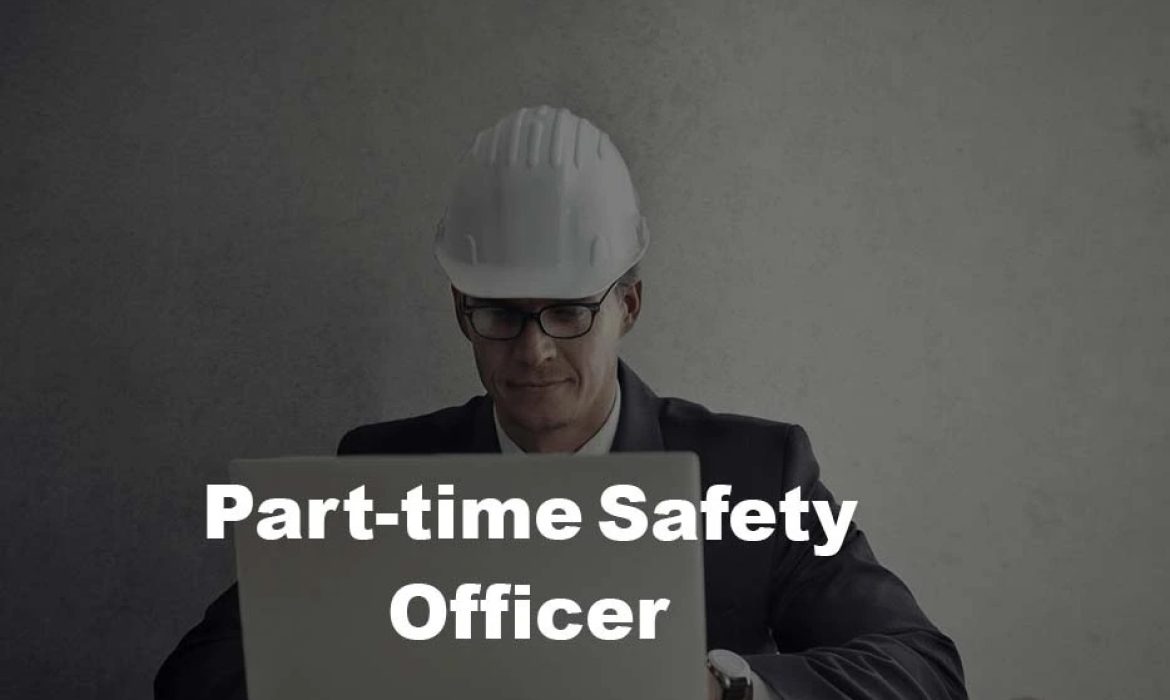Have you ever thought about a career that allows you to make a difference while maintaining a flexible schedule? The role of a Part-time Safety Officer could be the perfect fit.
As workplaces increasingly prioritize safety, the demand for qualified safety officers has risen, creating opportunities for part-time professionals to step in and contribute. Let’s dive into what this career entails and why it might be the right choice for you.
What Does a Part-time Safety Officer Do?
A Part-time Safety Officer ensures that workplaces comply with safety regulations and create environments where employees feel secure. Unlike full-time roles, part-timers work fewer hours, making it an ideal option for those balancing other commitments.
Key Responsibilities of a Part-time Safety Officer
1. Inspecting Workspaces: Regular checks to ensure safety protocols are followed.
2. Educating Employees: Conducting safety training sessions to inform workers about potential hazards and prevention methods.
3. Investigating Incidents: Analyzing workplace accidents to prevent future occurrences.
4. Reporting and Documentation: Keeping records of safety checks and compliance reports.
5. Conducting Safety Inspections: Regular inspections to identify and mitigate workplace hazards.
6. Training Employees: Organizing safety training programs to educate employees on best practices and emergency response procedures.
7. Developing Safety Policies: Drafting and updating safety manuals and policies in compliance with legal requirements.
8. Accident Investigation and Reporting: Investigating workplace incidents, preparing detailed reports, and recommending preventive measures.
9. Ensuring Legal Compliance: Staying updated on safety regulations and ensuring the organization adheres to them.
Skills and Qualifications
To excel in this role, a part-time safety officer must possess:
- Professional Certifications: Certifications like OSHA, NEBOSH, or IOSH are often required.
- Attention to Detail: Ability to identify risks and implement solutions effectively.
- Communication Skills: Strong verbal and written skills to convey safety protocols and train employees.
- Problem-Solving Ability: Capability to respond promptly and effectively to safety challenges.
Benefits of Hiring a Part-Time Safety Officer

- Flexibility: Choose hours that fit your schedule.
- Work-Life Balance: Ideal for parents, students, or retirees.
- Stepping Stone: Gain experience without committing to full-time.
- Diverse Workplaces: Opportunities to work in various industries.
- Cost-Effective: Reduces payroll costs compared to a full-time hire while maintaining workplace safety.
- Expertise on Demand: Access to experienced professionals without a long-term commitment.
- Improved Compliance: Ensures that safety standards are met, avoiding costly penalties.
How to Find the Right Part-Time Safety Officer
When hiring a part-time safety officer, consider the following:
- Look for candidates with relevant certifications and industry experience.
- Assess their ability to adapt to your organization’s safety needs.
- Verify references to ensure reliability and professionalism.
Note: If you are looking for a good Part-time Safety Officer in Singapore, you can check out ProSkillWorkforce, they will provide you with the best service.
How to Get Started
- Education: Enroll in safety training programs.
- Networking: Join industry groups to find part-time opportunities.
- Experience: Gain hands-on experience through internships or volunteering.
- Job Platforms: Explore job boards like LinkedIn, Indeed, or niche sites focusing on safety roles.
Industries That Need Safety Officers
Safety officers are in demand across various sectors, including:
- Construction: Ensuring site safety for workers.
- Healthcare: Preventing risks in hospitals and clinics.
- Manufacturing: Overseeing machinery and hazardous material safety.
- Education: Managing safety in schools and universities.
Challenges in the Role
While rewarding, the job comes with challenges:
- Keeping Up with Regulations: Laws and guidelines frequently change.
- Managing Resistance: Employees may resist safety protocols.
- Stress Management: Handling emergencies can be stressful.
Career Growth Opportunities
Even part-time roles can lead to significant career growth. You might transition to full-time, specialize in a niche, or even start your own consultancy.
Tools and Technology in Safety
Modern tools make safety management more efficient:
- Software: Apps for incident reporting and compliance tracking.
- Wearables: Devices that monitor worker health and safety in real time.
- AI and IoT: Predictive technologies to anticipate hazards.
Work-Life Balance as a Part-timer

The flexibility of this role allows you to:
- Spend quality time with family.
- Pursue other interests or studies.
- Maintain a healthier lifestyle without the burnout of a 9-to-5 schedule.
Comparing Full-time vs Part-time Roles
Full-time: More responsibility, higher pay, but less flexibility.
Part-time: Lower commitment, less stress, and an excellent way to test the waters.
Real-life Examples of Success
Meet Sarah, a mother of two who balances her family life with a part-time safety officer role in healthcare. Her story shows how part-time work can empower individuals.
Tips for Excelling in the Role
- Stay Updated: Regularly update your knowledge of safety regulations.
- Be Proactive: Address potential hazards before they escalate.
- Communicate Effectively: Build trust with employees and management.
The Future of Safety in Workplaces
With increasing awareness of workplace safety, the demand for professionals—especially flexible part-timers—is expected to grow. Automation and AI will also reshape the landscape, offering new opportunities.
Conclusion
A Part-time Safety Officer role offers a fulfilling and flexible career path, allowing you to make a tangible impact on workplace safety. Whether you’re just starting out or seeking a part-time commitment, this career can open doors to diverse industries and meaningful opportunities.
FAQs For Part-time Safety Officer
1. What is the main role of a Part-time Safety Officer?
A Part-time Safety Officer ensures workplaces comply with safety regulations and promotes a safe environment for employees.
2. What qualifications are required for this role?
Typically, a diploma or degree in occupational safety or health and certifications like OSHA or NEBOSH.
3. Can I work as a Part-time Safety Officer without prior experience?
Yes, entry-level roles and internships can help you gain experience.
4. What industries hire Part-time Safety Officers?
Industries like construction, healthcare, manufacturing, and education often hire safety officers.
5. How can I find part-time opportunities in this field?
Networking, job boards, and joining safety-related professional organizations can help you find roles.



